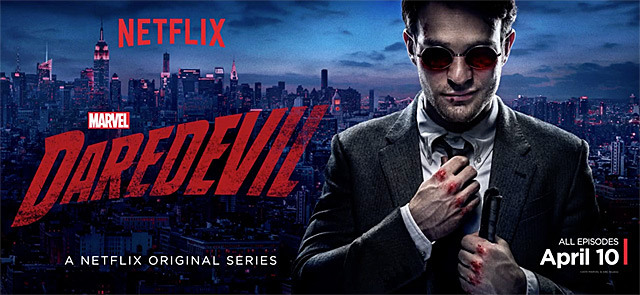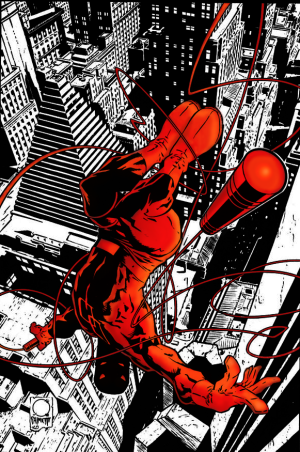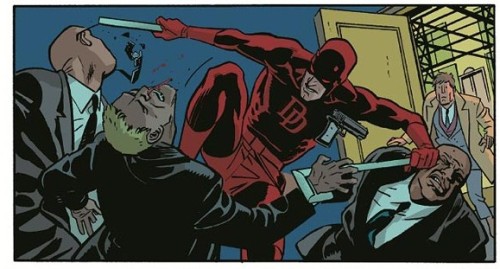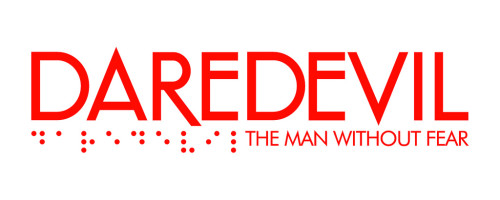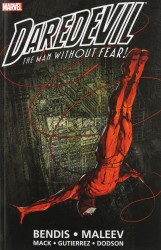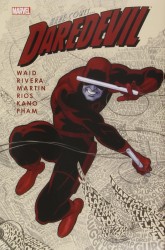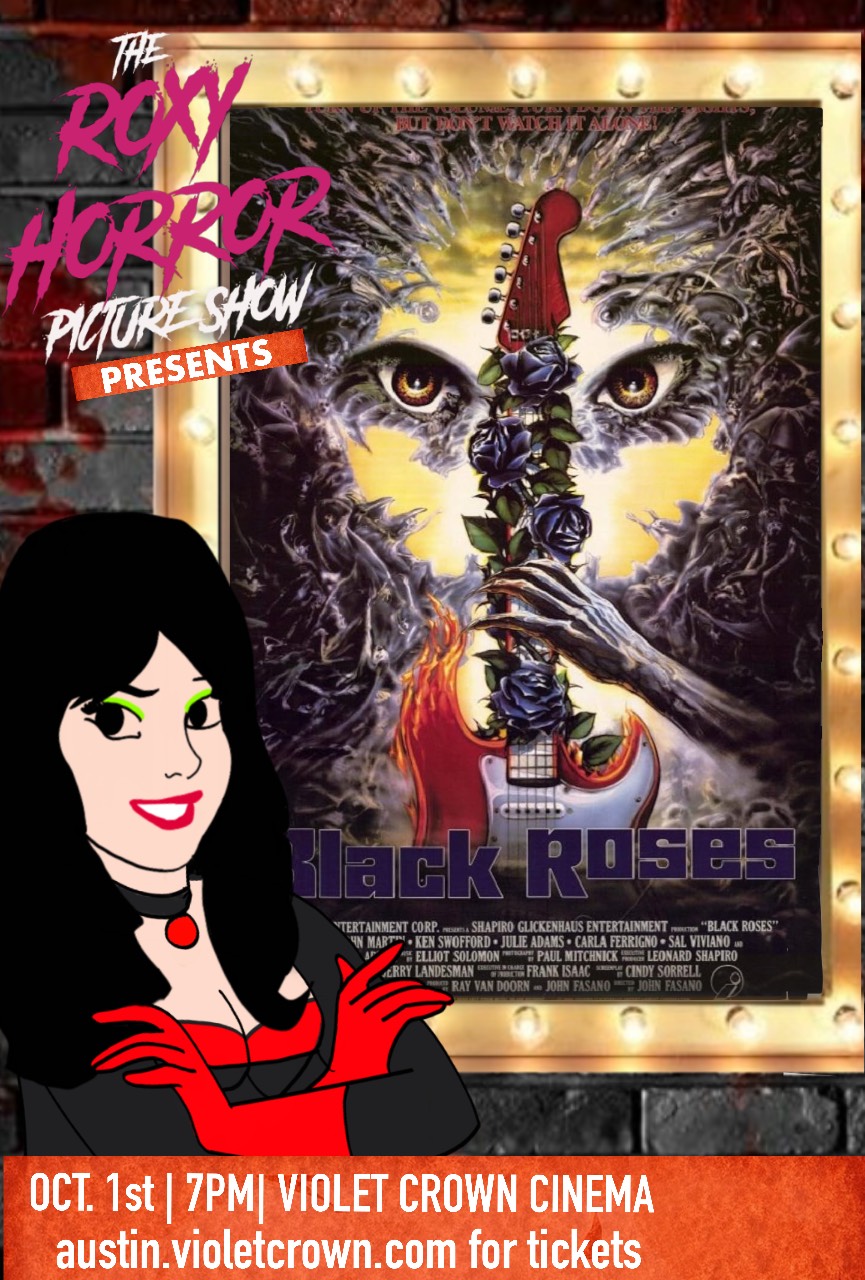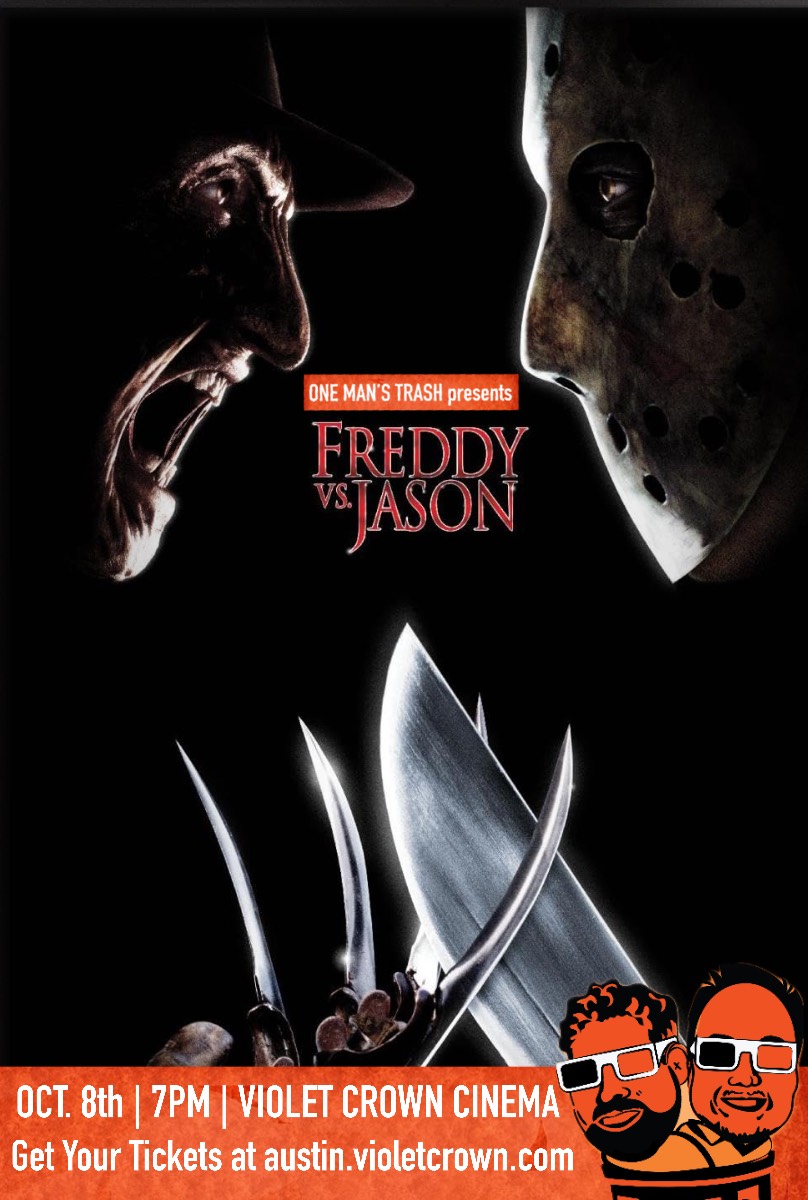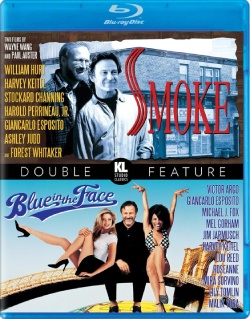This week sees the release of Netflix’s first foray into the world of superheroes with the release of Marvel’s Daredevil. This means the internet will be awash with lists of the top Daredevil comics you should read and crash courses on what you need to know about about the Man Without Fear before you see the show, and while those are both interesting paths to take I thought I would do a something a little different. You see, Daredevil holds a special place in my heart (not number one, that of course will always be Spider-Man) as one of my favorite Marvel characters and even one of my favorite characters in all of comics, but this was not always the case.
I’ve enjoyed what I refer to as a “reverse childhood”, by which I mean I’ve only grown more accepting in terms and characters and ideas explored in media as opposed to the usual narrowing trend that comes with age. As a child I hit comic reading age right as the 90’s began, and like many kids coming up in that time I had a very particular set of rules as to what was cool and what was crap. It sounds silly the more you think about it, but the reason I could not accept Daredevil is that I could not wrap my head around all these problems I could think of about his powers and abilities in terms of useability and, *sigh* realism (don’t look at me like that, I said it was silly). The more I think about it, this is the same nonsense that kept me from enjoying the Flash for many years (DC’s main guy in red who also has been famously written by Mark Waid), but as with many kids I thought I was was pretty genre savvy and was only reading the best stuff (an assertion that I assure you, does not hold up upon reflection) and “goofy” crap like Daredevil did not make the cut.
Fast forward to the late 90’s and the release of the Marvel Knights imprint. Daredevil relaunches with rising talent Joe Quesada penciling and Kevin Smith writing and even the most jaded of comic fans sat up and took notice of this event. Say what you will today about Smith, Quesada, and perhaps even the Guardian Devil arc itself, but it will always think fondly of it as it was what got me reading Daredevil and expanded my palate as a reader.
Talents such as David Mack, Brian Bendis, Ed Brubaker, and currently Mark Waid (I wisely checked out during the whole Shadowland thing) have made sure that I’ve been picking up the further adventures of Matt Murdock over the years. I also went back and read the Miller stuff and found it as exciting and fresh as it must have been when it was first written.
Through all the great writers and artists I’ve come to realize Matt Murdock’s story is about perseverance over loss. From his sight, his father, his secret identity, and even occasionally his sanity, Daredevil is the story of a man who always gets back up, even when he has no good reason to. Fight isn’t in Matt Murdock, fight is Matt Murdock. Daredevil is also a book about duality. Matt is a gifted lawyer and were he to focus totally on that he could (and does) help so many people, but the same gifted mind and warrior spirit drive him to hit the streets as a vigilante. He is a man trying to do the work of angels with the tools of the devil.
While many other superheroes walk about moralizing and handing out speeches about the virtue and doing the right thing as if it were easy, Matt Murdock struggles to do the right thing and often is not rewarded for it. He is about the most flawed and human mainstream superhero there is, but these flaws are what make him so relatable. That a guy who has lost so much and struggles so hard to keep doing the right thing continues to do so gives us hope that maybe we can too.
That’s why I read Daredevil, and why he means something to me.
Interested in picking up some of the titles mentioned in the article? Please use our Amazon links to do so!


